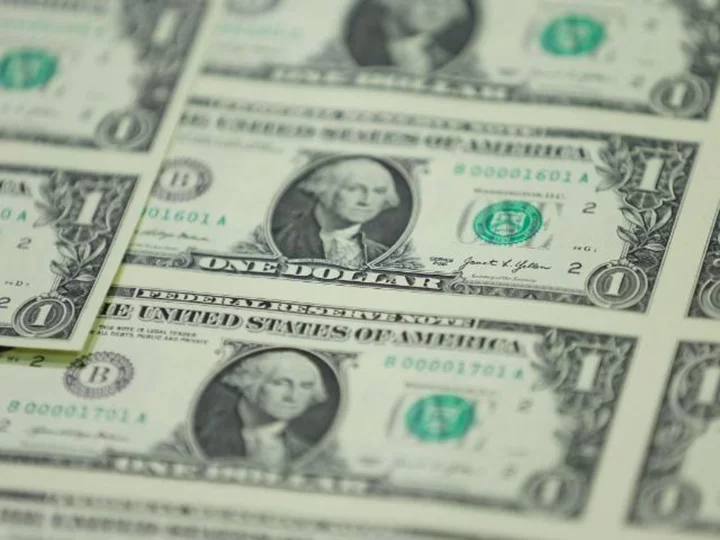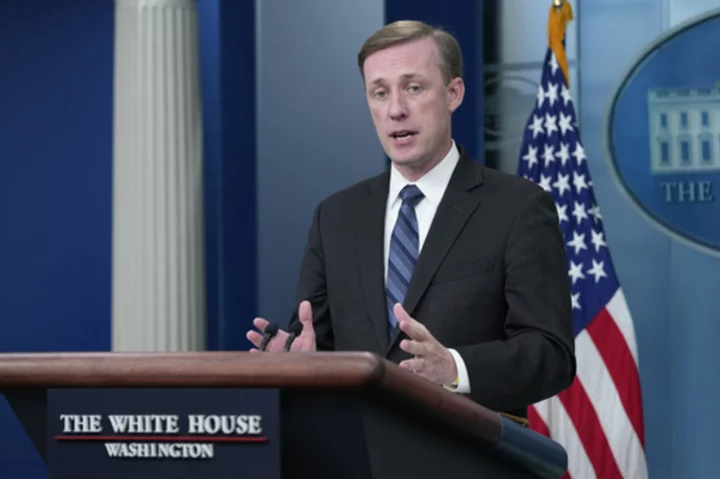The federal budget deficit is expected to balloon to about $2 trillion for fiscal year 2023, roughly double what it was in the previous fiscal year, according to a government watchdog group.
The surge stems largely from a sharp decline in tax revenues, coupled with an increase in mandatory spending on Social Security, Medicare and interest payments, as well as in other areas. It follows a sharp drop in the budget shortfall in fiscal year 2022 after two years of giant deficits swollen by record government spending on Covid-19 pandemic relief measures.
The deficit projection from the Committee for a Responsible Federal Budget and its tally for fiscal year 2022 do not include President Joe Biden's federal student debt cancellation plan, which the Supreme Court struck down earlier this year before it took effect.
The US Treasury Department lists the fiscal year 2022 deficit as $1.4 trillion because it takes into account the cost of the president's proposal. The agency is expected to report that the current fiscal year's deficit will be about $1.7 trillion because it will reflect the cancellation of Biden's initiative.
The growing deficit could further complicate the fraught discussions over funding federal agencies for the coming fiscal year, which starts October 1. Congress has until the end of the month to pass the spending package or, more likely, a short-term deal to keep the government operating. But House GOP hardliners are pushing hard for budget cuts, with several saying they don't fear a government shutdown.
The nation's fiscal imbalance remains a concern even though lawmakers agreed to a debt ceiling deal that is expected to reduce budget deficits by $1.5 trillion over the coming decade. But the package will do little to address the nation's enormous financial challenges, experts said.
The spike also throws a wrench into Biden's repeated claim that he cut the deficit by $1.7 trillion in his first two years in office -- which he again said during a Labor Day speech in Philadelphia. Experts have said it's highly questionable how much credit Biden deserves since the drop in the deficit largely stemmed from the expiration of the emergency pandemic programs.
Though budget deficits typically shrink when the economy is growing, the current fiscal situation is bucking the trend.
"If the deficit is this high when the economy is strong, imagine what it's going to look like when the economy is weak," said Marc Goldwein, senior policy director at the budget watchdog group. "I worry very much about our capacity -- our political capacity, our economic capacity, our financial capacity, our inflation capacity -- to borrow when we actually need to borrow for the next crisis."
What's behind the surge
There are several reasons for the growth in the deficit.
Tax revenue is way down after an unexpectedly strong 2021, which was due to a soaring stock market and strong housing market that yielded a bounty of capital gains taxes. But the stock market slumped last year, and the housing market has been hit by rising mortgage rates amid the Federal Reserve's repeated rate hikes.
Tax receipts were an estimated 10% lower in the first 10 months of the fiscal year, compared to the same period in the prior year, according to the Congressional Budget Office's latest report. That's even weaker than the CBO projected in May, mainly because of smaller-than-expected collections of individual and corporate income taxes. The agency noted reduced capital gains revenue as one factor.
At the same time, spending is up 10%, compared to the prior year, according to the CBO.
Spending on Social Security benefits jumped 11%, mainly because of a hefty annual cost of living adjustment stemming from a spike in inflation and because more people have joined the entitlement program as the Baby Boomers age.
Medicare outlays increased 18% because of changes in payment rates and in the types and amount of care beneficiaries received, the CBO said. And federal spending on Medicaid rose 6% because of a surge in enrollment due to a now-expired congressional provision that barred states from terminating recipients during the coronavirus public health emergency.
In addition, spending on education, defense and veterans' health care services all increased.
Even more notable, spending on interest on the public debt skyrocketed 34%, mainly because interest rates are much higher than they were in the first 10 months of fiscal 2022.
Interest rates on Treasury securities are at or near 16-year highs and are higher than the CBO projected in February, according to the Committee for a Responsible Federal Budget.
Even if interest rates drift down to the CBO's estimates, the national debt is on track to reach a record share of the economy by 2029, and the US will have to shell out $10 trillion in interest payments over the next decade, according to the committee. That would add to the pressure on Congress to cut spending or increase taxes.
"We made a lot of economic policy assuming that interest rates would always be low and assuming that revenue would be strong," Goldwein said. "That can change quickly, and when it does, you can't undo past decisions."









